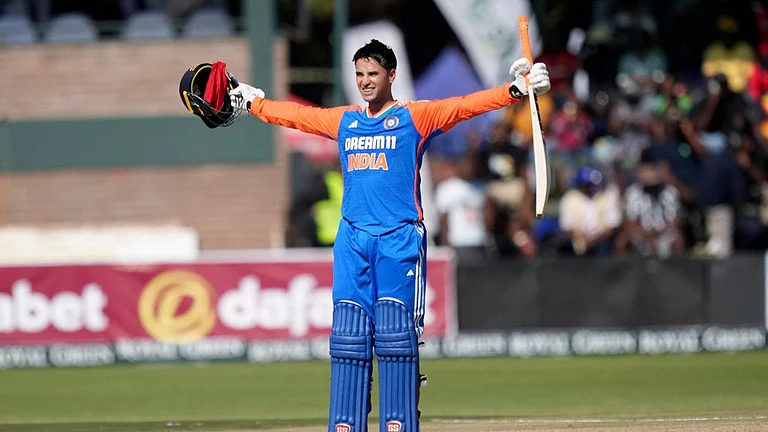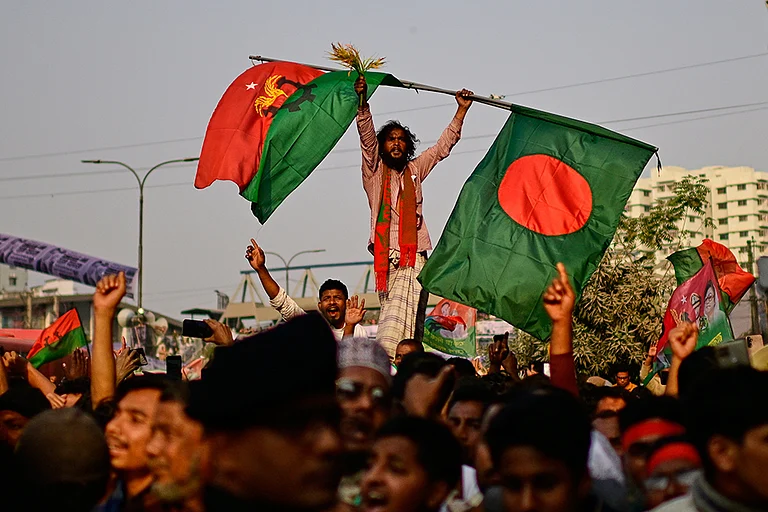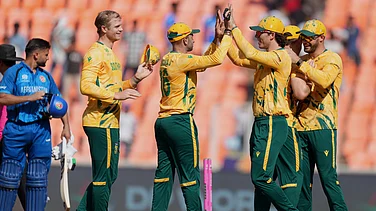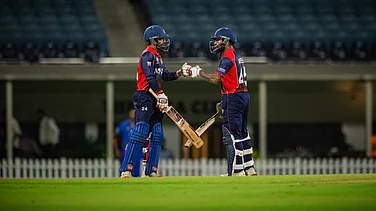The more things change in Indian sport, the more they remain the same. Sexual harassment of women athletes, lack of transparency and the arrogance of powerful administrators continue to destroy the careers of hundreds of athletes.
The most recent proof of this is in the ongoing battle between India’s wrestlers and the Wrestling Federation of India (WFI) chief Brij Bhushan Singh, who the fighters have accused of sexually harassing several girls. Singh is a Member of Parliament for the BJP. With his SUVs, neck chains and feet-touching acolytes, he wouldn’t be out of place in a violent north belt web series.
Commonwealth and Asian Games gold medallist Vinesh Phogat, and Olympic medallists Sakshi Malik and Bajrang Punia are the most high profile faces in the tussle against Brij Bhushan Singh.
It started in January, when they first made the allegations and registered their complaint with the sports ministry. They were promised a response in three weeks. But when nothing happened for over a couple of months, and Singh brazenly schmoozed with political colleagues like Eknath Shinde and Gautam Gambhir, and continued running the wrestling federation, the wrestlers decided to stage a protest again.
As of now, seven women wrestlers have filed separate police complaints against Singh of sexual harassment and criminal intimidation at Connaught Place Police Station in Delhi. The incidents date back to 2012 and extend to 2022. When asked why they did not speak out earlier, the complainants said they were wary of the consequences.
The actual number of Singh’s victims is believed to be much higher. But they have not come forward for the usual reasons – fear of backlash and the complications that come from accusations of this nature.
“Kahaniya to bahut saari ladkiyon ki hame pata hai (we know the stories of many girls who suffered at the hands of the WFI chief),” Phogat said in an interview. “Many times things happened right before our eyes. But we couldn’t say anything because we did not have the courage to do so. We are from humble backgrounds and he (Singh) is a powerful man. Women have a lot of responsibility and think everything through very carefully. You have to keep society and self-respect in mind, because when you make revelations, your problems often multiply.”
Sexual harassment of women athletes is rampant in India. Young girls often spend several days away from home on camps and tournaments. Sometimes they have women coaches with them, but the ground reality is that many women coaches or support staff have families, and are unwilling to go on outstation assignments. That leaves female athletes vulnerable to predatory male coaches or administrators. The skewed power ratio in that relationship does not make things any easier. And so, for the sake of their career and family honour, the athletes keep quiet, even in the face of traumatic abuse.
Just two years ago, seven girls accused athletics coach P Nagarajan of sexual abuse. One of the victims was 13 when Nagarajan first laid his hands on her. Any resistance would be met with threats of murder of that girl and her family.
After the charges came out, Nagarajan tried to commit suicide by consuming sleeping pills. But he survived and was later arrested under the IPC and POCSO Act.
Last year, the Sports Authority of India (SAI) sacked chief cycling coach RK Sharma after a woman cyclist accused him of inappropriate behavior during a training trip to Slovenia. The cyclist said the coach had forced her to share a hotel room with him.
Even Mary Kom, celebrated boxer and head of the Oversight Committee looking into the Brij Bhushan allegations, has faced sexual abuse. It did not happen at the hands of an administrator or coach, but was no less scarring. She narrated the experience in a raw open letter to her sons a few years ago.
“Let’s talk about rape. Let’s talk about sexual crimes against women. Every single day, women are being stalked, molested and raped. You, my boys, are only nine-years-old – and the youngest only three – but this is the age where we must sensitize ourselves to how we treat our women,” Mary Kom said in the note.
She also wrote, “Let me start by telling you that your mother was molested, first in Manipur and then again while she was out with her girlfriends in Delhi and Haryana’s Hissar. I know it is shocking to learn that even a woman who has earned her spurs, boxing her way through life, was made to feel violated.”
Prime Minister Narendra Modi has been at the forefront of celebrating the successes of Indian sport. He has made no secret of his desire to use sports as a tool for nation building. While that is noble, the ills that fester at the core of Indian sports need his urgent attention as well.


























